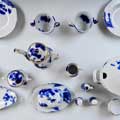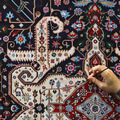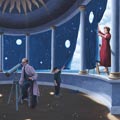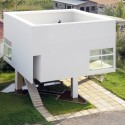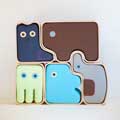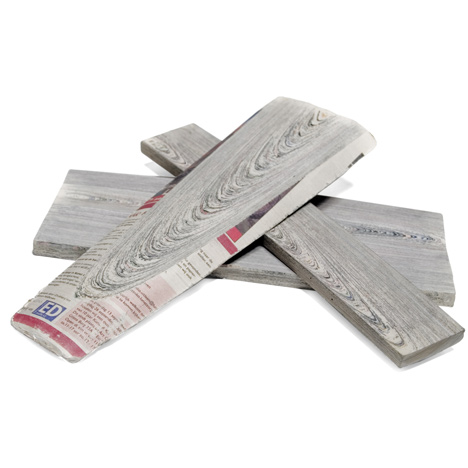 Dutch designer Mieke Meijer and Dutch design studio Vij5presented a wood-like material made from recycled newspapers at Ventura Lambrate in Milan last month.
Dutch designer Mieke Meijer and Dutch design studio Vij5presented a wood-like material made from recycled newspapers at Ventura Lambrate in Milan last month.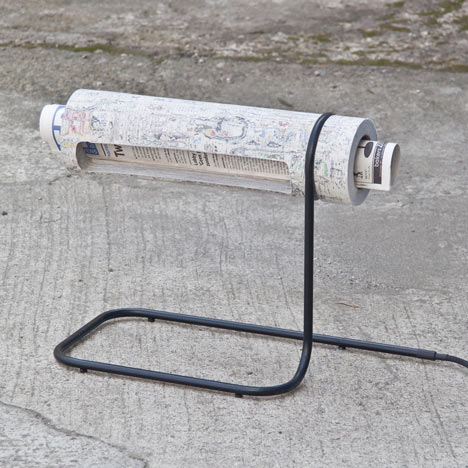
Reading Light by Christian Kocx
NewspaperWood is made by gluing the papers together and then cutting or sanding them to reveal lines that are similar to a wood grain.
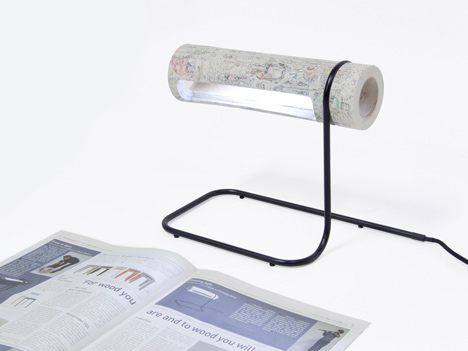
Reading Light by Christian Kocx
The material has been used by designers rENs, Breg Hanssen,Greetje van Tiem, Ontwerpduo, Floris Hovers, Christian Kocxand Tessa Kuyvenhoven to create a range of prototype objects and furniture, including jewellery, a lamp and a display cabinet, which were shown in Milan.
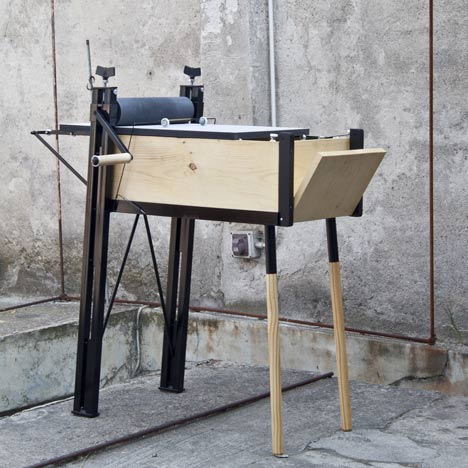
Press to Open by Floris Hovers
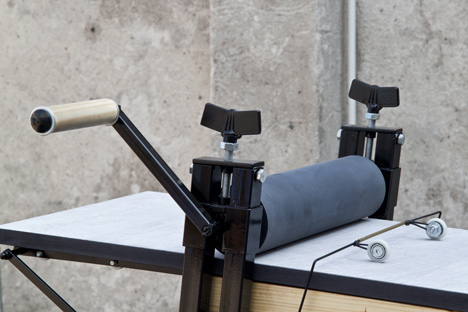
Press to Open by Floris Hovers
Here are some more details from Mieke Meijer and Vij5:
NewspaperWood | KrantHout
project development & collection | Vij5
material concept | Mieke Meijer
first prototype collection designed by | rENs, Breg Hanssen, Greetje van Tiem, Ontwerpduo, Floris Hovers, Christian Kocx & Tessa Kuyvenhoven
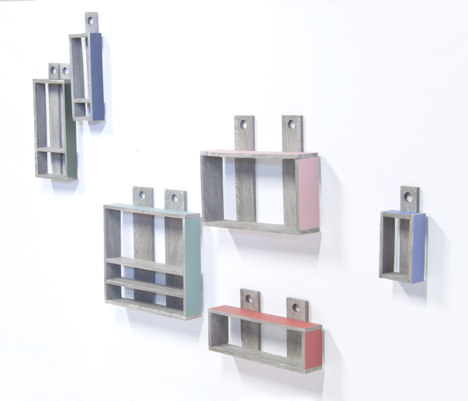
Paper Frames by Ontwerpduo
The layers of paper appear like lines of a wood grain or the rings of a tree …
by designlabel Vij5
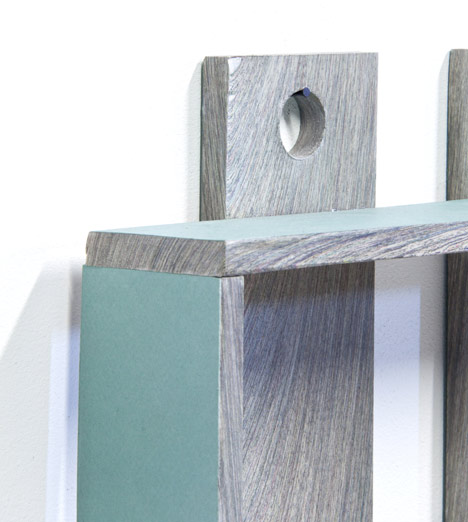
Paper Frames by Ontwerpduo
Introducing a new material: NewspaperWood
EN Every day, piles of newspapers are discarded and recycled into new paper.
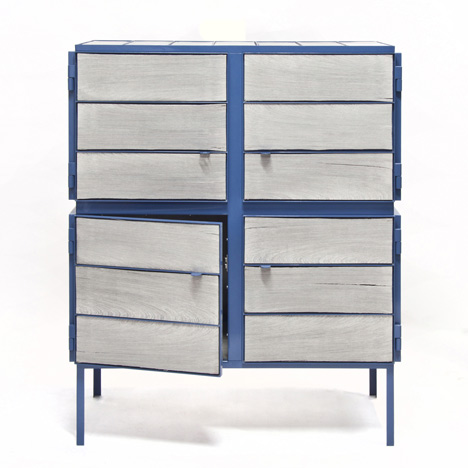
Framed by Breg Hanssen
During her study at the Design Academy Eindhoven in 2003, Mieke Meijer devised a solution to use this surplus of paper into a renewed material: NewspaperWood.
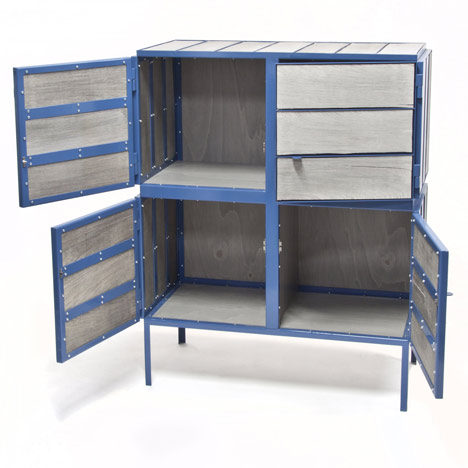
Framed by Breg Hanssen
NewspaperWood shows a reversing of a traditional production process; not from wood to paper, but the other way around.
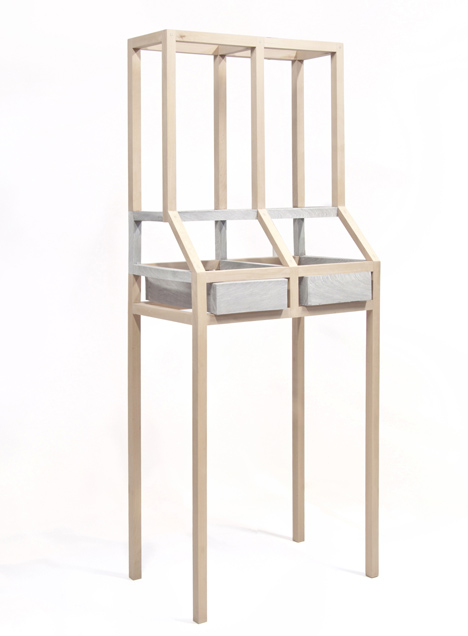
Display Cabinet by rENs
When a NewspaperWood log is cut, the layers of paper appear like lines of a wood grain or the rings of a tree and therefore resembles the aesthetic of real wood.
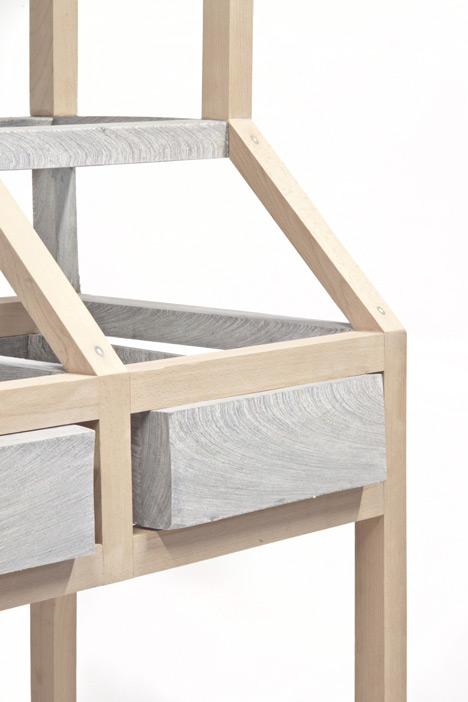
Display Cabinet by rENs
The material can be cut, milled and sanded and generally treated like any other type of wood.
Upcycling
About the environmental impact of NewspaperWood
EN NewspaperWood does not aim to be a large scale alternative to wood, nor to use all paper waste into a new material.
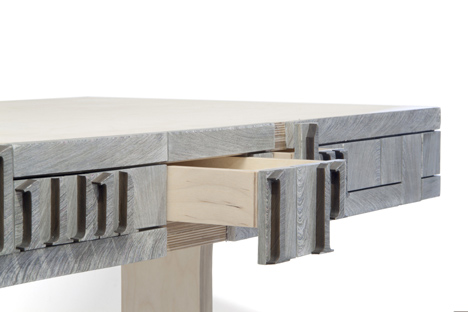
From A to Z by Greetje van Tiem
The main theme in the project is ëupcyclingí with which we show how you can change a surplus of material into something more valuable by using it in another context.
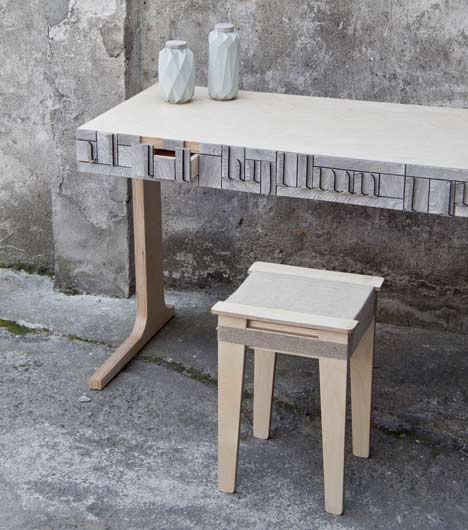
From A to Z by Greetje van Tiem
Although printing techniques for newspapers are nowadays efficient enough to reduce the test prints and first unusable newspapers to a minimum, there still is enough material available.
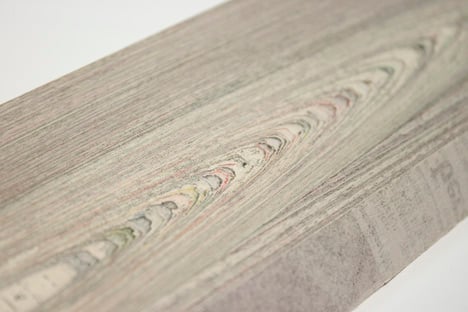
Next to that we use ëyesterdayís newspaperí: the newspapers that are printed but not sold and will turn out to be old news the next day anyway .. a perfect local source for our basic material!
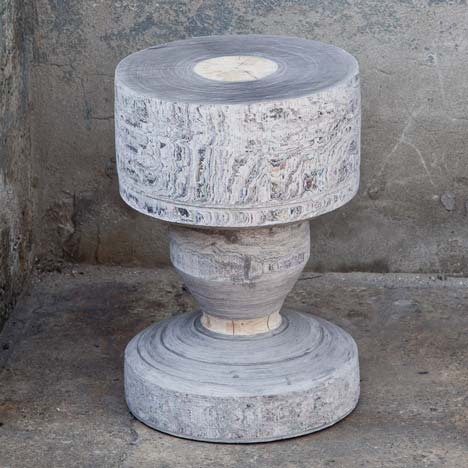
United by Tessa Kuyvenhoven
To actually upcycle the newspapers into our new wood-like material, we (temporarily) take the newspapers out of the already existing and efficient cycle of paper-recycling.
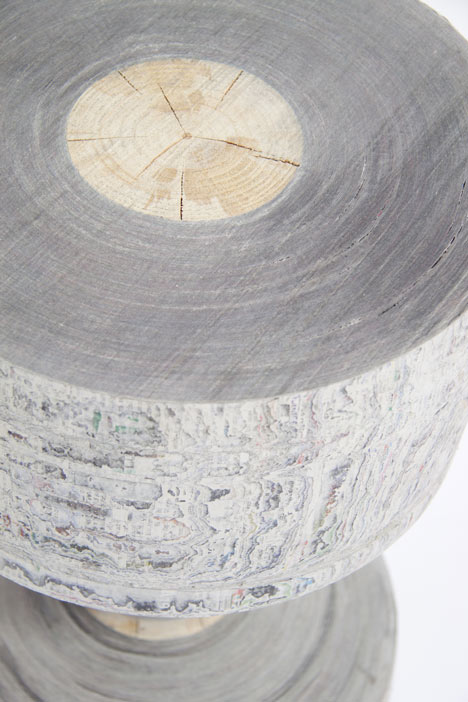
United by Tessa Kuyvenhoven
We think it would be ideal to be able to bring our own waste material back into the circle again.
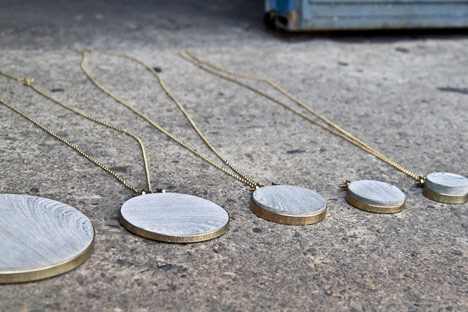
Sample Series by rENs
Therefore we use a glue to construct the material which is free of solvents and plastici-zers which would make it more difficult to recycle.
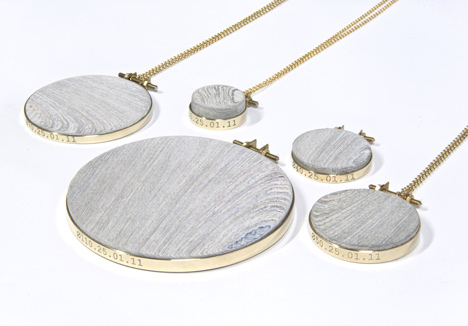
Sample Series by rENs
With this it is not only possible to put our own sawing and sandpapering waste back into the circle, but also to bring the NewspaperWood products to the scrap yard for recycling, although we hope they will be cherished for a long time…
- ۹۰/۰۲/۲۷



